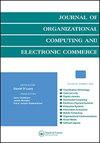顾客社会价值对推荐奖励方案优化的影响
IF 1.9
4区 管理学
Q3 COMPUTER SCIENCE, INFORMATION SYSTEMS
Journal of Organizational Computing and Electronic Commerce
Pub Date : 2020-05-13
DOI:10.1080/10919392.2020.1761750
引用次数: 6
摘要
摘要随着社交媒体的普及,企业倾向于依靠现有客户的社交联系来获取新客户。推荐奖励计划(RRP)已成为最有效的方法之一。我们强调了客户推荐的社会动机,并假设客户可以从成功的推荐中获得公司提供的奖励和名为社会价值的心理无形奖励。然后,我们通过比较企业、发送者(现有客户)和接收者(新客户)之间的两个嵌套Stackelberg博弈的平衡,探讨了社会价值对企业最优推荐奖励结构的影响。其中一个游戏忽略了发送者的社会价值,而另一个则考虑了发送者社会价值的影响。首先,我们给出了使用RRP的适用条件,并表明发送者的社会价值通过分担奖励负担来帮助企业避免过度奖励。我们还发现,当公司考虑到发送者的社会价值时,公司的最佳奖励结构从奖励发送者转向奖励接收者或放弃奖励计划。考虑到企业应该使用奖励计划的条件,最优的奖励结构与两个客户之间的联系强度密切相关。具体地说,当联系强度较弱时,公司倾向于奖励发送者更多;相反,公司倾向于给接受者更多的报酬。本文章由计算机程序翻译,如有差异,请以英文原文为准。
Impact of Customer’s Social Value on Optimizing Referral Reward Programs
ABSTRACT With the popularity of social media, firms are prone to relying on the existing customers’ social contacts to acquire new customers. Referral reward programs (RRPs) have become one of the most effective methods. We highlight social motives for customer referrals and assume that the customer can obtain both firm-offered rewards and psychological intangible rewards named social value from his successful referral. Then we explore the impact of social value on firms’ optimal referral reward structure by comparing the equilibriums of two nested Stackelberg games among a firm, a sender (existing customer), and a receiver (new customer). One of the games ignores the sender’s social value, while the other one considers the impact of the sender’s social value. Firstly, we give the applicable conditions for using RRPs, and show that the sender’s social value helps the firm avoid excessive rewards by sharing the rewards burden. We also find that the firm’s optimal reward structure shifts away from rewarding the sender toward rewarding the receiver or forsaking the reward programs when the firm takes the sender’s social value into account. Considering the conditions under which the firm should use reward programs, the optimal reward structure is closely related to the tie-strength between the two customers. Concretely, when the tie-strength is weak, the firm tends to reward the sender more; conversely, the firm tends to reward the receiver more.
求助全文
通过发布文献求助,成功后即可免费获取论文全文。
去求助
来源期刊

Journal of Organizational Computing and Electronic Commerce
工程技术-计算机:跨学科应用
CiteScore
5.80
自引率
17.20%
发文量
7
审稿时长
>12 weeks
期刊介绍:
The aim of the Journal of Organizational Computing and Electronic Commerce (JOCEC) is to publish quality, fresh, and innovative work that will make a difference for future research and practice rather than focusing on well-established research areas.
JOCEC publishes original research that explores the relationships between computer/communication technology and the design, operations, and performance of organizations. This includes implications of the technologies for organizational structure and dynamics, technological advances to keep pace with changes of organizations and their environments, emerging technological possibilities for improving organizational performance, and the many facets of electronic business.
Theoretical, experimental, survey, and design science research are all welcome and might look at:
• E-commerce
• Collaborative commerce
• Interorganizational systems
• Enterprise systems
• Supply chain technologies
• Computer-supported cooperative work
• Computer-aided coordination
• Economics of organizational computing
• Technologies for organizational learning
• Behavioral aspects of organizational computing.
 求助内容:
求助内容: 应助结果提醒方式:
应助结果提醒方式:


